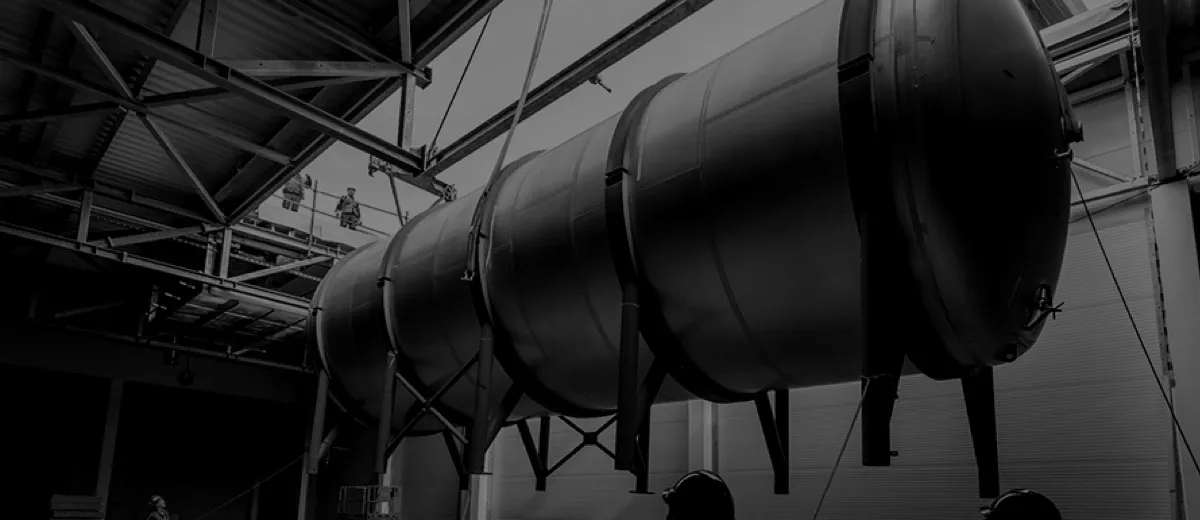

The České Budějovice beer brewing history began in 1265, when České Budějovice was founded by the Czech King Přemysl Otakar II, who handed significant privileges to the city, these privileges included the brewing right.
On May 4th, 1351, Charles IV, the Bohemian king, granted various freedoms to the inhabitants of České Budějovice, including the one-mile law. Since then, no foreign pubs have been allowed to locate within an area of approximately 10 km from the city.
On June 20th, 1410, Wenceslas IV extended the older one-mile law, the result of this meant that there were no foreign malt houses, breweries, artisans and taverns within a mile of the city.
In 1464, the townsfolk of Budějovice forced its respect and liquidated foreign malt houses, breweries and taverns within the one-mile law for local brewers behind the city walls and in their surroundings.
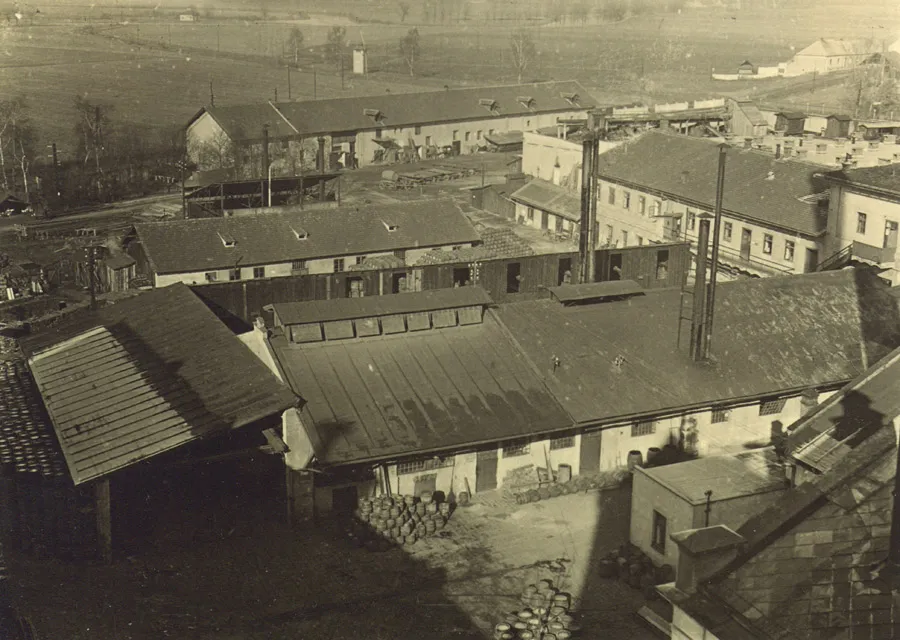
After extensive negotiations with the townsfolk, České Budějovice city hall was then able to build its own brewery – Velký pivovar (Big Brewery). According to the agreement with the townsfolk, the town brewery brewed the so-called white (wheat) beer, while the individual townsfolk brewed dark (barley) beer.
King Ferdinand I of Rome and Bohemia, bestowed praise to the people of Budějovice for their particularly good bread and beer.
Ferdinand I orders the people of Budějovice to send him a local brewer along with his family to the imperial court in Augsburg to brew beer for him.
The townsfolk have sought the municipal brewery’s administration since the beginning of the 18th century. They argued the right to brew beer, a right that had belonged to them since 1495. The city council did in fact give it to them in 1722, but they had to give up brewing beer in their homes. For this reason, they bought the brewery house from brewer Matěj Konvička, and established the so-called Small Brewery. However, the city council declared this building as its property. Since then, the city has owned two breweries: Velký pivovar (Big Brewery) at Rožnovská brána and Malý pivovar (Small Brewery) on the corner of Karla IV and Kanovnická streets.
There were protests from the townsfolk in relation to this act, and the entire dispute continued until 1795, when the town handed over both breweries to the townsfolk. This led to the creation of the so-called Town brewery.
With regard to both Budějovice breweries, the equipment and facilities soon ceased to satisfy the need to increase beer production. Both breweries were reconstructed and rebuilt on a number of occasions, but it soon became apparent that it would not be possible to further develop these inner-city breweries. In 1847, the decision was made to build a new cooling cellar in the Linz suburb. A new brewery was built here later between 1851 and 1852.
People flocked in their millions from the old continent to America, with the hope of finding a better life there. The emigrants also brought their thirst with them, and due to the popularity of European beer it began to be imported. Czech beers were also among them - since 1872 also Budweiser Bier beer from České Budějovice.
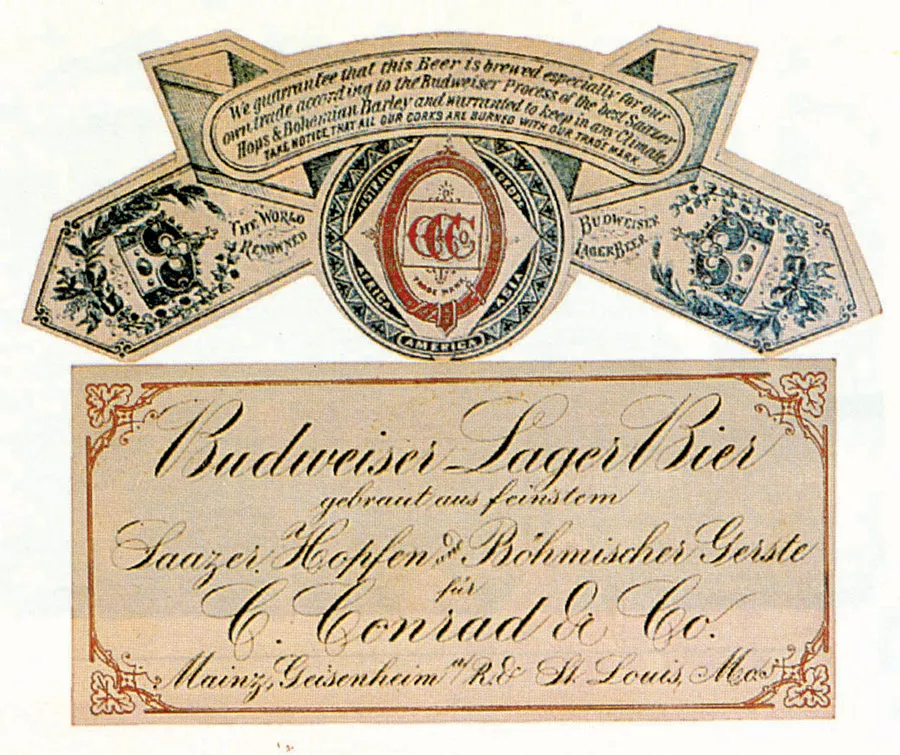
The growing popularity of European beers on the American market led C. Conrad (an immigrant) to the idea of imitating these beers in America. The problem arose when selecting a brand for their product. It was apparent that it must be a well-known European brand, whereby the name could be pronounced easily in English. Therefore, in 1876, another Budweiser Bier saw the light of day. Six centuries after beer was brewed in České Budějovice. Carl Conrad chose the Anheuser-Busch brewery for his purpose.
C. Conrad filed the Budweiser Lager Bier trademark with the US Patent Office in 1878. Then in 1891, he transferred this trademark to the Anheuser-Busch brewing concern, which therefore obtained the right to sell this beer. The adoption of Budweiser was not only unjustified, but the American trademark owners considered it to be a fantasy trademark. In contrast, Budweiser beer from České Budějovice expressed a specific indication of the place of origin, which was derived from the city’s official name. The image on the Anheuser-Busch label from 1876 states that this beer is brewed in accordance with the Budějovice recipe and from Czech ingredients. Adolphus Busch himself, the founder of the American beer giant Anheuser-Busch, testified before the South New York District Court in a dispute over the Budweiser designation in 1894 as follows: “The idea was simple - to produce beer with the same quality, colour and taste as beer produced in Budějovice or in Bohemia."
The "Český akciový pivovar" (Czech joint stock brewery, today's Budějovický Budvar, n.p.) started brewing its reputable beer on 7 October 1895. The events that had happened before its establishment in the city of České Budějovice (Budweis) with a divide between different nationalities were truly dramatic. A part of Czech brewing right advocates, dissatisfied with the situation in the mostly German-oriented City Brewery, supported by top Czech bourgeoisie representatives, decided to set up their own company.
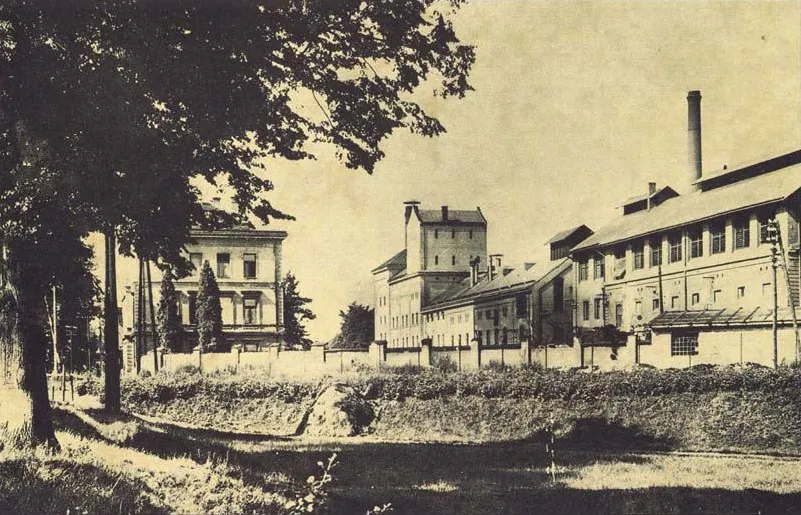
Quality beer from a joint-stock brewery quickly established itself among strong competition. In 1896, high-quality beer earned the brewery significant awards at the economic exhibition and the pharmacy exhibition in Prague. In 1897, the brewery’s products won a gold medal at the food exhibition in Stuttgart.
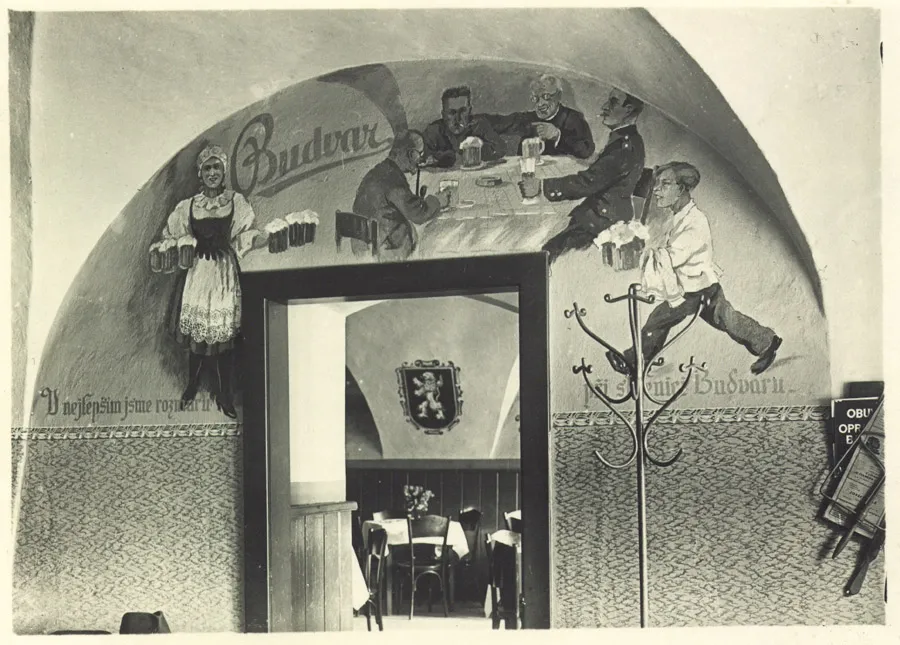
The "Joint-Stock Brewery Restaurant" was ceremoniously opened on May 20th, 1896. The official opening day was set for Sunday, but the restaurant was packed all day on the Saturday, and all the rooms which were decorated in an elegant style with electric lighting, burst at the seams on the Sunday thanks to a stream of thirsty pilgrims. From that moment on, the brewery became the centre of Czech national life in the city.
With the ever-increasing number of beer exhibitions - over a few years the joint-stock brewery was ahead of the competing townsfolk brewery - forcing the expansion of all operations. In 1905 -1908, a second brewery was built with a new engine room, lager cellars were expanded, and other operations were also modernised.
When the Anheuser-Busch concern in the United States registered the Budweiser brand in 1907, both Budweis breweries strongly protested against it (a joint-stock brewery has also exported its beer to the USA since 1906). After a great deal of speculation, in 1911, an agreement was concluded whereby the Czech joint-stock brewery recognised the validity of the American registration for a compensation but did not relinquish the right to label its products with the word “Budweiser” and the adjective “original” worldwide.
When the Anheuser-Busch concern in the United States registered the Budweiser brand in 1907, both Budweis breweries strongly protested against it (a joint-stock brewery has also exported its beer to the USA since 1906). After a great deal of speculation, in 1911, an agreement was concluded whereby the Czech joint-stock brewery recognised the validity of the American registration for a compensation but did not relinquish the right to label its products with the word “Budweiser” and the adjective “original” worldwide.
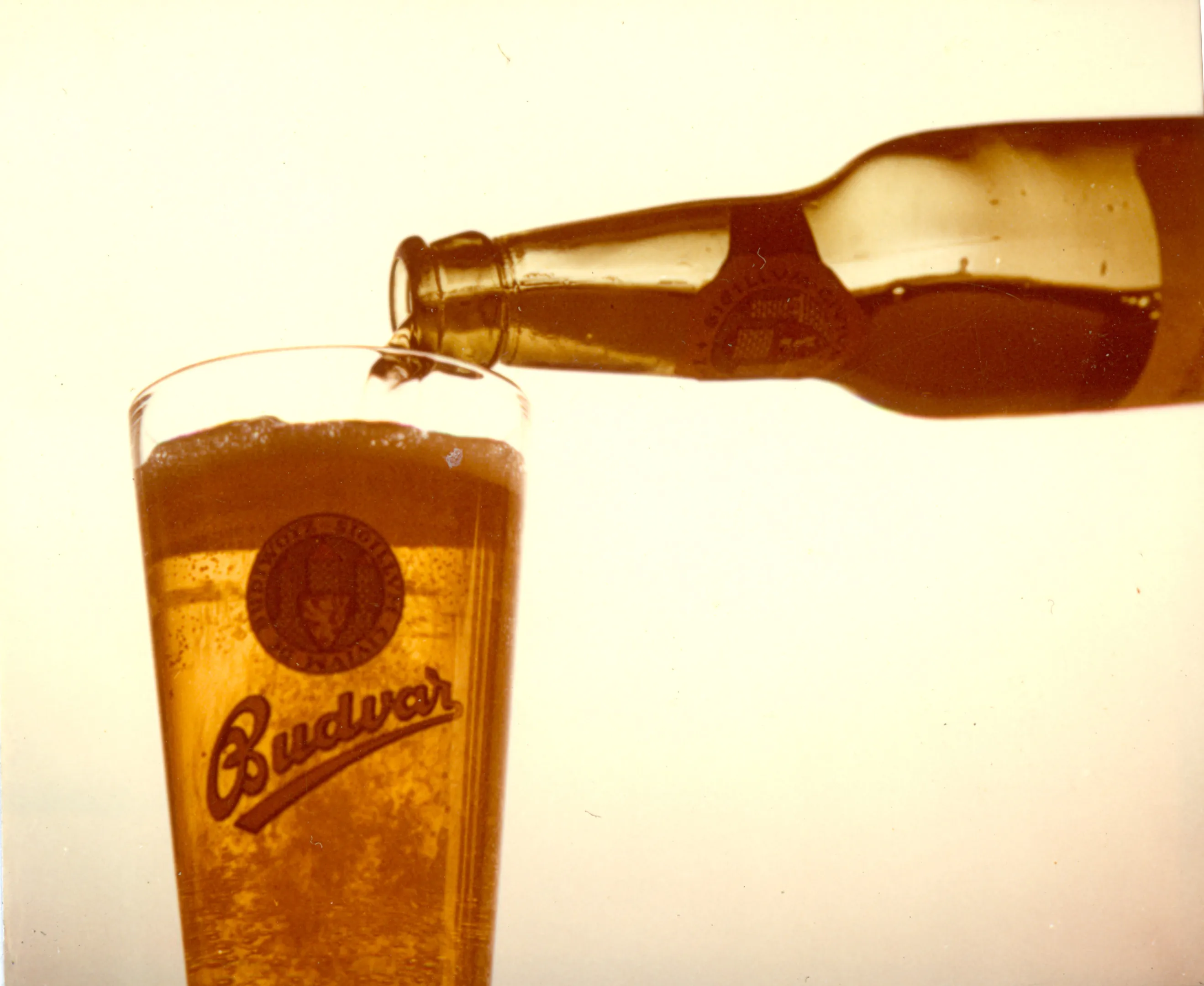
At the onset of 1939, on the brink of war, and under the threat of confiscation of their goods in the USA, both České Budějovice breweries were forced to enter into a new agreement with the Anheuser-Busch concern, only this time it was to their detriment. They undertook not to use the designations Budweiser, Budweis and other derivatives for a disproportionate financial compensation for the North American mainland area from Panama to the north.
During the occupation, a Nazi administrator was appointed to Budvar - the Czech joint-stock brewery, and the brewery became part of a network of protectorate breweries. Throughout the war, exports practically disappeared, although the joint - stock brewery largely exported until 1942.
In 1967 the Budějovický Budvar brewery, national corporation, was established as the successor of the original joint stock brewery and city brewery and took over most of their protected trademarks. It was operating on the same level as Jihočeské pivovary (South Bohemian Breweries) and the companies shared the samemanagement.
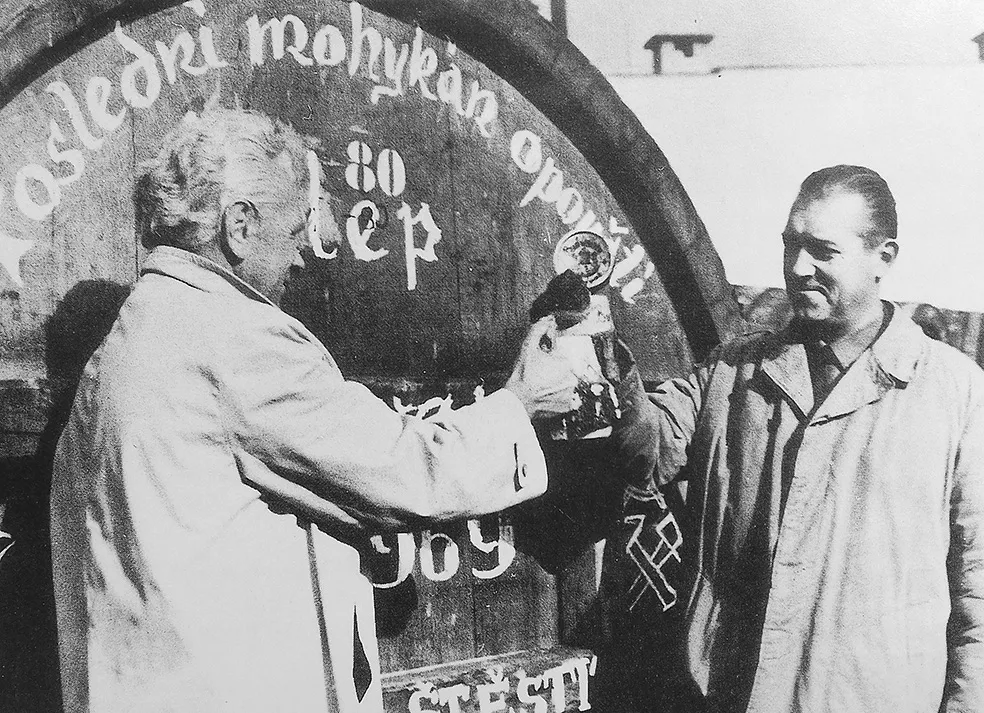
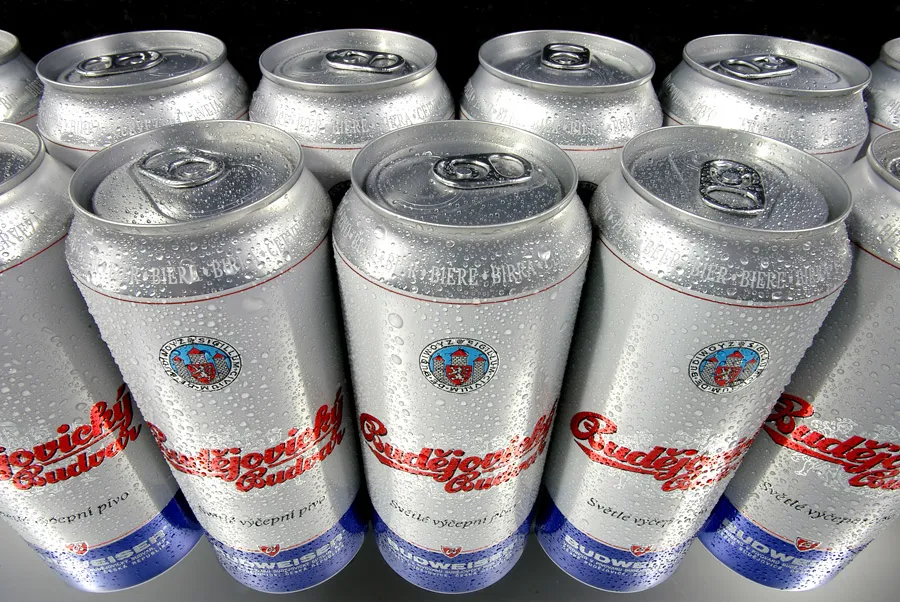
In 1973, Budějovický Budvar introduced a novelty - canned beer. However, an attempt to mechanically pour beer into cans at the brewery encountered technical problems (low performance) and ultimately failed. This led to the brewery management’s decision to cooperate with the "Zlatý bažant (Golden Pheasant)" brewery in Hurbanov, where they had an automatic can filling line.
A new stage in the brewery’s history occurred after the 1989 Velvet Revolution, when (January 1st, 1991) Budějovický Budvar became physically independent. Due to further overall modernisation in relation to all operations, the establishment of direct business relations with domestic and foreign business partners, the construction of its own distribution warehouses, the brewery increased production by 250%
Major modernization of facilities allowed Budějovický Budvar to ship over one million hectolitres of beer.
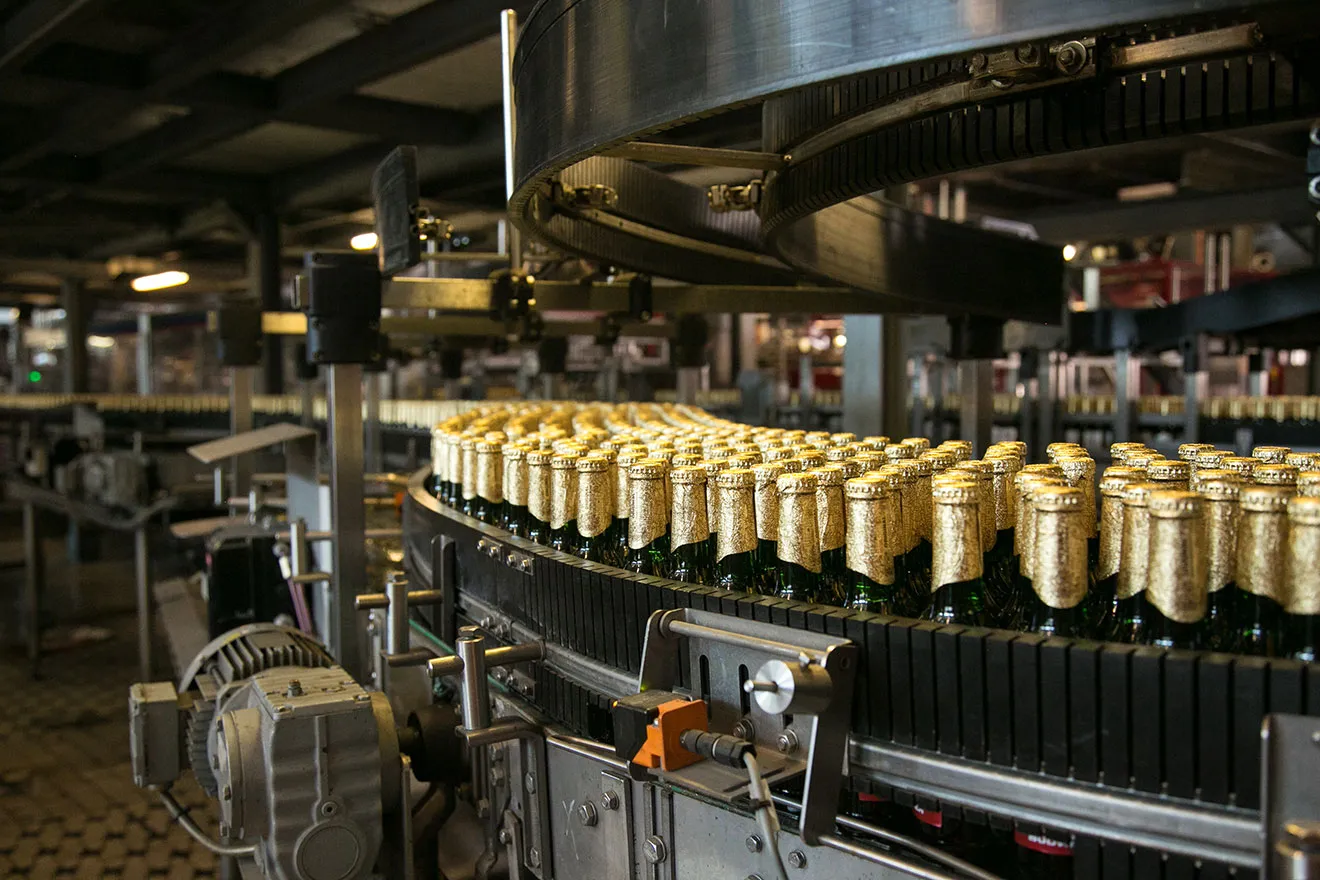
In 2000, the brewery already exported beer to 56 countries globally. In some markets, the brewery began to establish its own subsidiaries. Germany was the largest market at that time, which receives 200,000 hectolitres of beer annually.
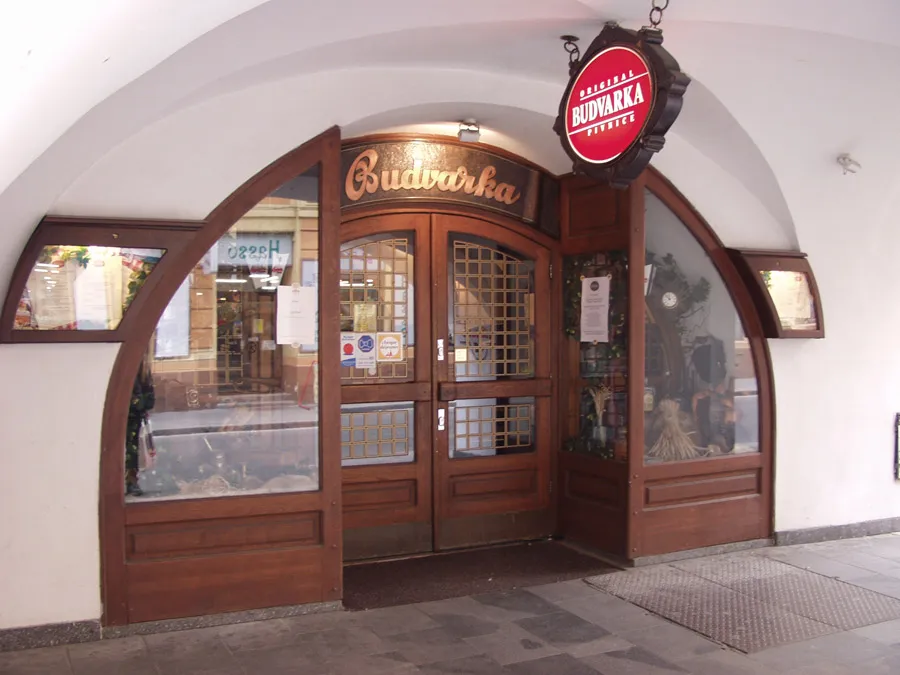
The first Original Budvarka Beerhouse was opened in the Hotel Malý pivovar in České Budějovice. The concept of the chain of original breweries is intended for all those who like a traditional yet modern brewery environment with a pleasant atmosphere, where they can enjoy fantastic, well-treated quality beer and excellent Czech and foreign cuisine with friends.
In 2003, Budějovický Budvar launched a reliable and modern technology in beer tapping. It’s a system of stainless-steel tanks, guaranteeing highest quality beer freshness.
The European Commission awarded Budějovický Budvar the right to use the geographical indications "Budějovické pivo" and "Českobudějovické pivo". This decision came into force on May 1st, 2004.
October 5th, 2005, the Budějovický Budvar brewery presents new half-litre bottles for a complete portfolio of products and brands.
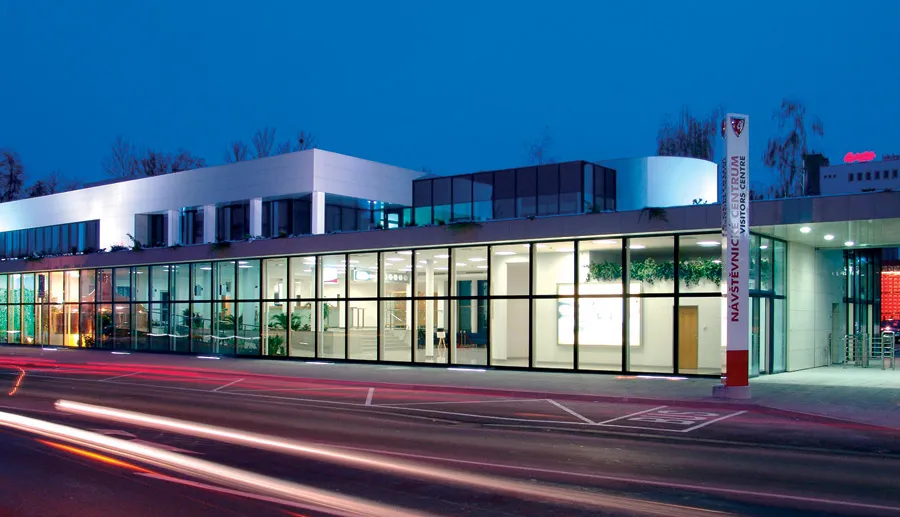
The brewery opened a new Visitor Centre and multimedia exhibition titled The Story of Budweiser Beer, which colourfully depicts the České Budějovice brewing history. The centre also has a shop selling brewery gifts and souvenirs as well as promotional items.
A light draft beer was launched on the market on March 1st, under the totally new Pardál brand. The Pardál brand has fundamentally expanded the existing brewery range. It has a significantly different taste than Budějovický Budvar beer. This is mainly characterised by its high bitterness. The Pardál brand is also interesting in that 300 men from its future consumers ranks were directly involved in the development of sensory properties. Until then, this procedure was completely unique in the world and was later copied by several other Czech breweries.
Budějovický Budvar has signed an exclusive import agreement with the Danish beer producer Carlsberg Breweries on the import and sale of premium Carlsberg lager in the Czech Republic.
Budějovický Budvar introduced the unusual non-returnable (one-way) kegs for draft beer for sale in the Czech Republic, these kegs have a volume of 20 and 30 litres. The KeyKeg system essentially works the same principle as conventional beer tanks: the beer is filled into an inner bag made of a special foil, which is completely impermeable to gases and therefore ensures the beer has high microbiological and sensory quality.
The first restaurant In Loco (translated as "In the right place") was opened in the Clarion Congress Hotel České Budějovice. The restaurant provides guests with a new modern interior and great gastronomic experiences. The concept is based on the idea of a meeting of the "big" world (and people knowing the world) in a world of stubborn and somewhat peculiar South Bohemian nature and culture. The link between the two worlds is the Budějovický Budvar brand, which knows both of these worlds and has managed to establish itself in both.
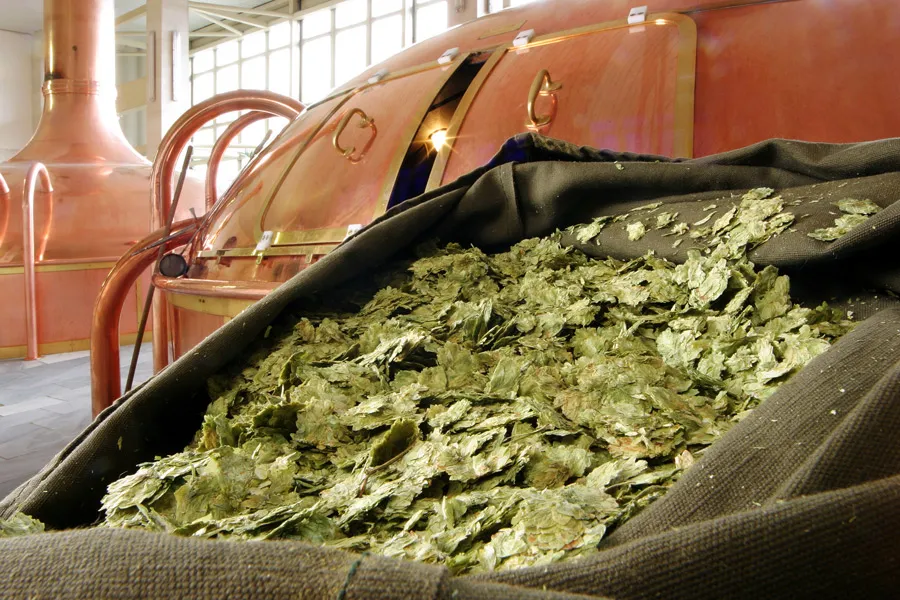
On 25 August the first batch of special BUD beer was brewed using fresh hops. Fresh hops belong go the most precious beer-making inputs, because they must be processed immediately after harvest, i.e. on the same day they were picked. Therefore, they are hardly ever used in brewing. Budějovický Budvar was the only Czech brewery in 2012 that brewed beer using fresh hops. The hop sorts used are Žatecký poloraný červeňák picked in the "U Splavu" hop garden that belongs to the famous site "Údolí Zlatého potoka" (Golden Creek Valley) of the hop-making municipality Blšany.
From 1 June 1st, Budějovický Budvar became the exclusive importer of Somersby apple cider to the Czech Republic. Somersby is a premium brand and a part of the Danish Carlsberg Breweries.
On 14 February 2013 the brewery's own new bottling plant for canned beer with a filling capacity of 16 800 cans per hour started operation.
.webp)
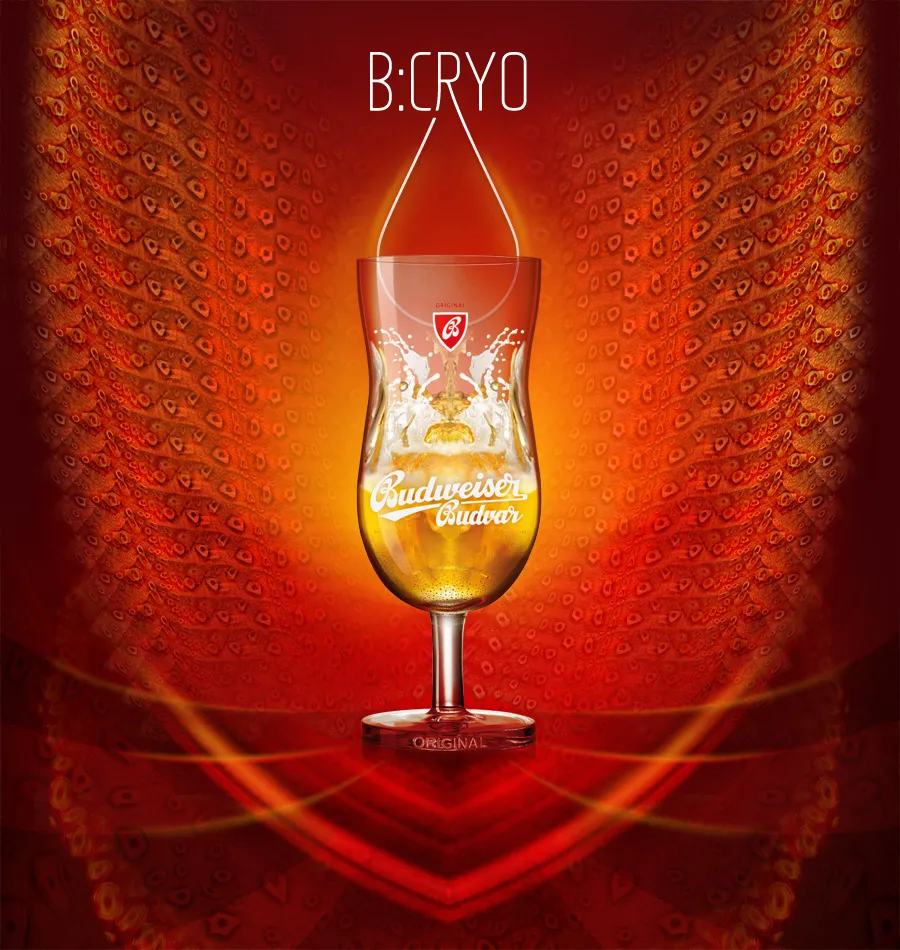
On 12 November 2014 a revolutionary innovation was launched on the Czech market – a beer called Budějovický Budvar B:CRYO. This is a super-special beer made using a patented, protected procedure: the so-called cryoconcentration in the bottle: by freezing water, the beer turns into a highly concentrated beverage with 40 degrees, 60 EBC bitterness and alcohol content around 21%. Using an original tapping device, B:CRYO is pushed out of the bottle and guests can themselves tap the beer into their glasses. With innovation Budějovický Budvar set up a brand new beer category. The cryoconcentration procedure in the bottle is unique in the world and subject to a patent.
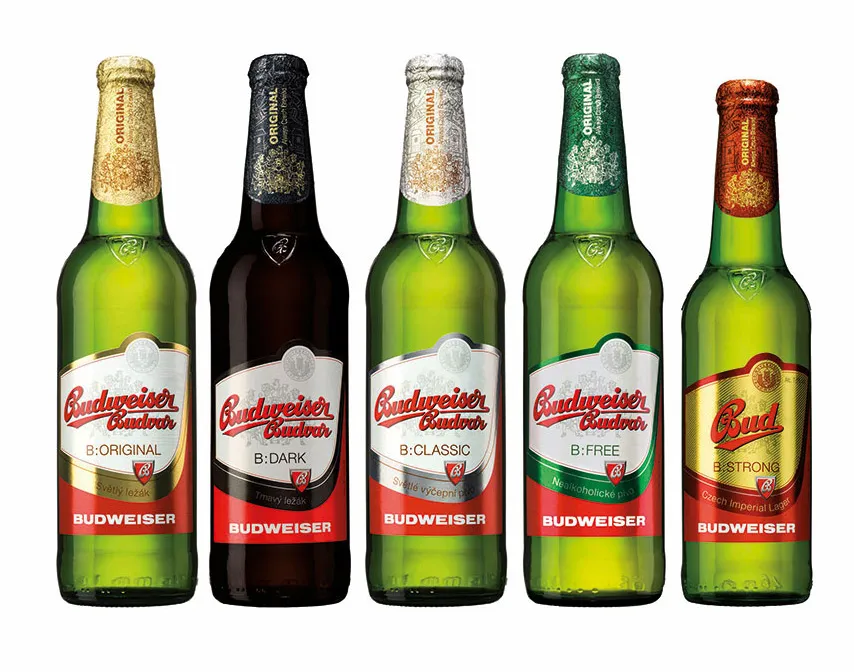
The primary objective of the project was to consolidate the appearance of packaging with brand values, enable easier product identification for consumers, reduce the number of label variants and increase the output of the bottling plant.
Throughout the entirety of 2016, Budějovický Budvar was commemorating the 120th anniversary of its existence. During this year, several limited beer editions carrying this theme emerged, e.g., a light yeast unfiltered lager in kegs and more. The anniversary motif appeared on many souvenirs (ceramic tray, metal sign, opener, set of historical images, beer pitcher, tankard with a lid, etc.). The brewery staged a number of cultural events and published a book about the history of Budějovický Budvar, completed the reconstruction of the multimedia exhibition "A story of the Budweis beer", staged theatre-like brewery tours with actors playing scenes in contemporary costumes and “A Day in Budvar”.
Budějovický Budvar broke another magic line in its history and confirmed the long-term trend of growing interest in beer of the Budějovický Budvar and Pardál brands. On Thursday 11 February 2016 the volume of beer brewed in this brewery and shipped exceeded 50 million hectolitres. In the first year after being founded (financial year 1895/1896) 35 223 hl were shipped.
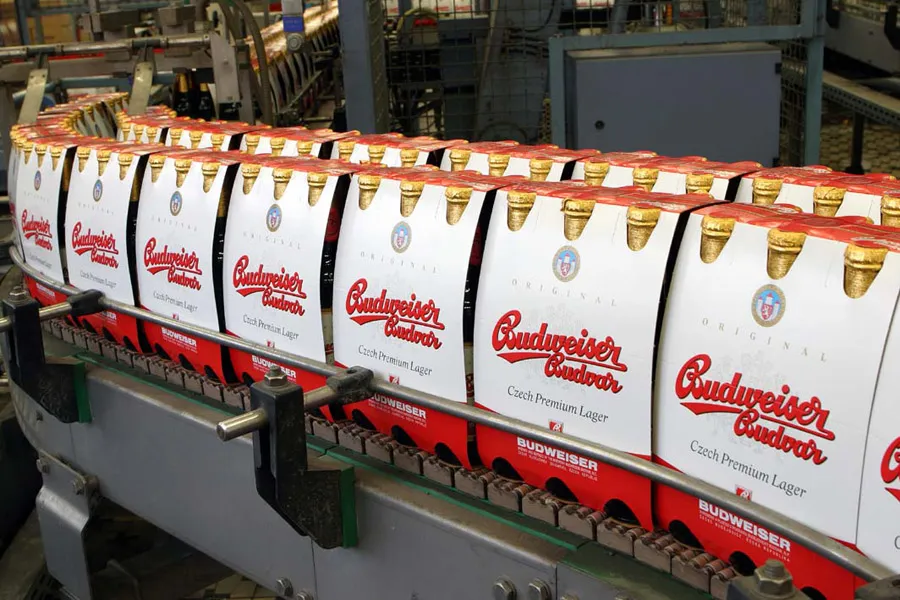
Budějovický Budvar CVIKL Unfiltered yeast beer – light beer. As this beer is not filtered, it is more bitter than the light beer Budějovický Budvar. Thanks to freshly activated yeast added shortly before bottling, the beer retains its fresh taste like in the brewery cellar. The yeast also causes slight turbidity of the beverage with an alcohol content of 4.0% vol. London Pride Premium beer made in London that made the Fuller’s brewery famous all over the world. It has an amazing copper-like colour, fresh fruit, and spices aroma, a pleasant malty taste with subtle fruity notes and a medium hop bitterness. London Pride has an alcohol content of 4.7% vol.
In 2017 Budějovický Budvar exported record beer volumes. It exported 990,508hl of beer to 76 countries, an annual increase of 1.5%. Light Budějovický Budvar lager was the most valuable export in 2018 and its sales grew by 2.6%.
Installation of new equipment in the new lager cellar started. A giant crane with a load-bearing capacity of 350 tons was used to move two stainless steel tanks with a volume of 2100hl from transport vehicles into the cellar. The tanks are more than 14m long and their diameter is more than 5m. The tanks were made by ZVU Strojírny Hradec Králové.
